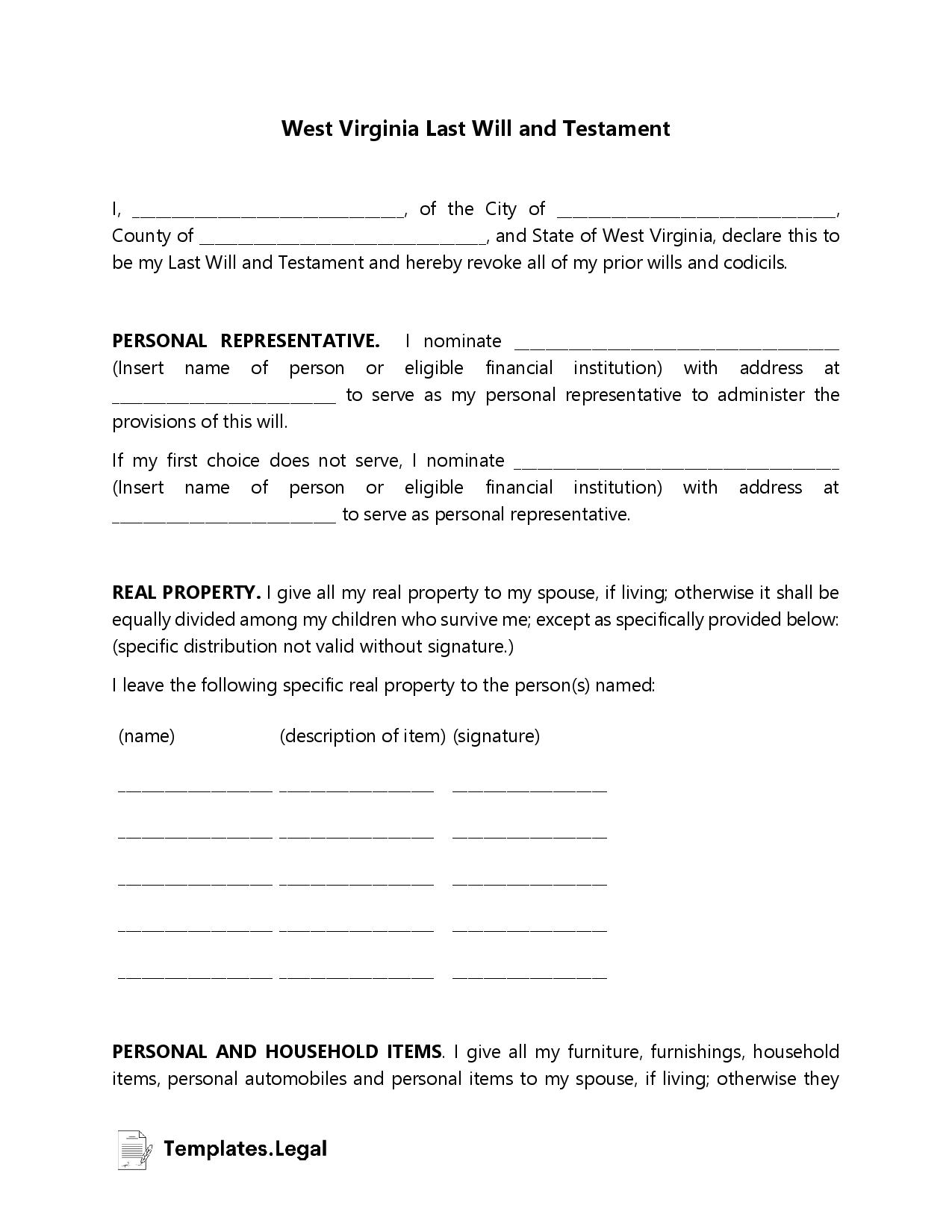West Virginia Last Will and Testament
Writing a proper West Virginia last will and testament creates a legal way to express your wishes after you are gone. The laws vary from state to state, and proper will templates in West Virginia or forms can be difficult to find. However, in West Virginia, it’s not very difficult to create a legally binding last will and testament on your own.
West Virginia Last Will and Testament Template
West Virginia Last Will and Testament Requirements
When creating a will, the most important parts to remember are the state requirements for a legal will. In West Virginia, these are relatively simple:
- The testator must be of sound mind
- The testator must be at least 18 years old
- Two witnesses must be present and sign the will
- The will must be in a physical form
A last will and testament form in West Virginia doesn’t have to be specific, but it does have to have these necessities. Otherwise, the testament could be contested in court and thrown out. It’s not required but highly recommended to appoint an estate executor in a will.
Frequently Asked Questions
Creating a last will and testament can be a lengthy undertaking. It is complicated and can be confusing. Here are some commonly asked questions about creating a will in the state of West Virginia, and the requirements and extra information needed.

